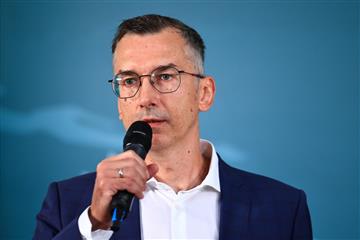
In the context of a limited labor market and a shortage of employees, employers are forced to adapt by developing new recruitment strategies. One of the main trends shaping the modern labor market is the search for a balance between the education system and market demands. This was stated by Dmitry Puchkov, Managing Director of Avito Works, speaking at the Eastern Economic Forum (EEF). Despite the fact that employers continue to increase salary offers to attract the necessary specialists, it is not possible to completely solve the problem. For example, in the summer of 2024, wages in Russia increased by 9% per year on average, and by 6% per year in the Far Eastern Federal District, but this is not enough to cover the shortage of highly qualified personnel. In such a situation, an important solution is cooperation between educational institutions and businesses, including the creation of joint targeted and specialized programs that will help fill the gaps in qualifications and train specialists who meet the requirements of the modern market. “The introduction of internships, work placements and joint projects will allow students to practice the knowledge and skills they have acquired, and employers will be able to identify potential employees before their final employment. In addition, close cooperation between educational institutions and businesses guarantees the training of the necessary specialists. Often, educational programs do not follow the rapid changes and trends of the labor market, so by the end of their studies at a university or college, some of the graduate’s knowledge and skills become outdated,” said Dmitry Puchkov. Thus, as an example, Dmitry Puchkov cited Avito’s successful experience in launching a Data Science Master’s program jointly with MIPT. Students combine their studies with a paid internship at the company. By 2028, it is planned to establish cooperation with 11 specialized universities, including Moscow State University, ITMO and the Higher School of Economics. Thus, it is planned to train about 3,000 IT specialists. In addition to the demand for IT specialties, the expert also noted the large-scale shortage of qualified personnel in industry and production, which became a catalyst for the popularization of secondary vocational education among the population. According to the Avito Work study, 71% of employed Russians consider secondary vocational education (SVE) promising. 67% of respondents would be ready to consider the possibility of obtaining secondary vocational education if they were just starting their careers. “As a platform that unites employers and job seekers, we actively popularize missing professions and options for obtaining them. According to the results of our study, only 26% of Russians are well aware of the possibility of targeted admission when entering universities or Among this category of respondents, 81% believe that this helps to increase the efficiency of training specialists in the context of a shortage of personnel,” comments Dmitry Puchkov. Recall that on September 4 at the EEF, Avito Work and the Ministry of Professional Education and Employment of Primorsky Krai signed a cooperation agreement. The parties agreed to help job seekers in Primorye find suitable vacancies and help regional employers select suitable specialists. During the implementation of the agreement, special attention will be paid to measures to reduce tension in the Primorsky Krai labor market and popularize industrial professions in the region.
0 комментариев